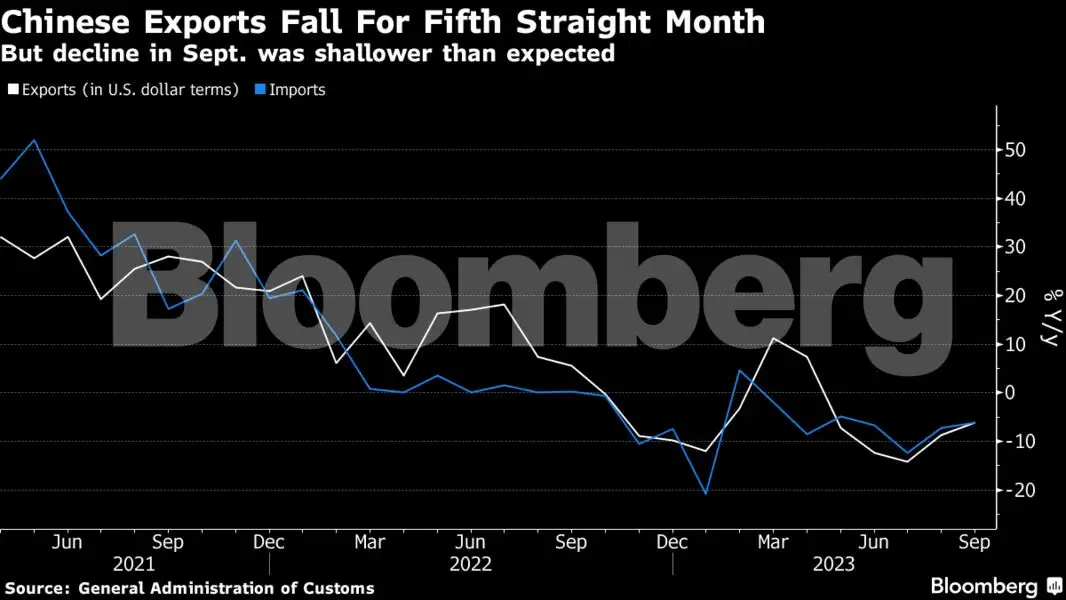Overseas shipments fell 6.2% from a year ago, a slower rate than the 8% decline forecast by economists in a Bloomberg survey. Imports decreased 6.2%, down for seven months in a row. The resulting trade surplus was $77.7 billion.
The numbers reflect improved global demand for Chinese-made goods even as geopolitical tensions are building. The economy still faces a myriad of challenges including a property crisis and weak consumer spending. Consumer prices also returned to the bring of deflation in September, underscoring how fragile the economy remains.

While support rolled out by policymakers in the last couple of months has aided growth somewhat, concerns remain about whether more may be needed to bolster the outlook. Authorities are considering unleashing new stimulus to help the economy meet the official growth target of around 5%, Bloomberg reported this month.
 Bloomberg
BloombergThe IMF recently cut its growth forecast for China for this year to 5% from 5.2%, and for next year to 4.2% from 4.5%. The economy is losing momentum because of declines in real estate investment and housing prices that endanger government revenues from land sales, as well as weak consumer sentiment, according to the Fund.
Additional data next week will also provide more clues on the state of the economy in the third quarter, including gross domestic product figures and indicators on retail sales, industrial output and unemployment.








